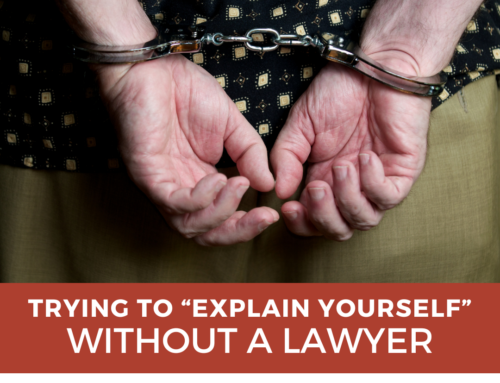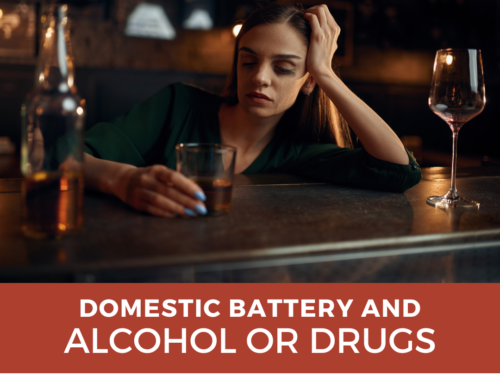Facing domestic battery charges is a serious matter, and the situation can become even more complex if your accuser refuses to testify against you. Understanding the implications of this scenario is crucial for building a strong defense with your lawyer’s assistance.
What Happens if Your Accuser Refuses to Testify Against You in a Domestic Battery Trial?
If your accuser refuses to testify against you in a domestic battery trial, it can significantly impact the prosecution’s case. The prosecution relies heavily on the testimony of the accuser to establish the facts of the case and prove your guilt beyond a reasonable doubt. Without their testimony, the prosecution may face challenges in presenting a compelling case against you. However, the case does not automatically get dismissed, and several factors come into play.
Related: Learn about domestic battery charges in Illinois
Legal Implications
When your accuser refuses to testify, the prosecution might still proceed with the case using other forms of evidence. They may rely on physical evidence, such as medical records, photos of injuries, and forensic evidence. The prosecution can also use statements your accuser made to the police, emergency responders, or other witnesses immediately after the incident. These statements might be admissible under certain exceptions to the hearsay rule, such as the excited utterance or present sense impression exceptions.
Building Your Defense
Your lawyer will closely examine the prosecution’s remaining evidence to identify weaknesses and inconsistencies. Without the accuser’s direct testimony, the defense can argue that the evidence is insufficient to prove your guilt beyond a reasonable doubt. Your lawyer might challenge the admissibility of hearsay statements and highlight the lack of direct testimony to question the credibility of the prosecution’s case.
Impact on the Case
The refusal of the accuser to testify can create significant hurdles for the prosecution. The absence of their testimony means the judge or jury will not hear their account of the incident directly, which can weaken the overall impact of the prosecution’s case. This situation can benefit the defense, as it can cast doubt on the prosecution’s ability to meet the burden of proof.
Role of Your Lawyer
Your lawyer will play a crucial role in navigating this complex situation. They will file motions to exclude any hearsay statements that the prosecution attempts to introduce. They will also scrutinize all remaining evidence for inconsistencies and work to discredit any other witnesses presented by the prosecution. Your lawyer’s goal will be to demonstrate that, without the accuser’s testimony, the evidence does not sufficiently support the charges against you.
Related: The most common domestic battery defenses
FAQ About Accusers Refusing to Testify in Domestic Battery Trials
Check out these commonly asked questions about what happens if your accuser refuses to testify against you in a domestic battery trial. If you don’t see your question here, please call our office and we’ll find you the answers you need.
Can the Case Be Dismissed if the Accuser Refuses to Testify?
The case may not be automatically dismissed if the accuser refuses to testify. The prosecution might still proceed with other evidence. However, the refusal can significantly weaken their case.
What Evidence Can the Prosecution Use Without the Accuser’s Testimony?
The prosecution can use physical evidence, medical records, photos of injuries, forensic evidence, and any admissible hearsay statements made by the accuser immediately after the incident.
How Can My Lawyer Challenge the Prosecution’s Case Without the Accuser’s Testimony?
Your lawyer can challenge the admissibility of hearsay statements, scrutinize the remaining evidence for inconsistencies, and argue that the prosecution cannot meet the burden of proof without direct testimony from the accuser.
What Should I Do If My Accuser Refuses to Testify?
If your accuser refuses to testify, continue to work closely with your lawyer. Your lawyer will develop a strategy to challenge the prosecution’s evidence and advocate for your rights in court.
Related: Can you lose custody of your kids if you’re convicted of domestic battery?
Can I Be Convicted Without the Accuser’s Testimony?
While it is possible to be convicted without the accuser’s testimony, it is more challenging for the prosecution. They must rely on other evidence to prove your guilt beyond a reasonable doubt, which can be difficult without the direct account of the accuser.
Do You Need to Talk to an Attorney About Domestic Battery Defense?
If you need to talk to a domestic battery defense attorney in Illinois, we’re here to help. Call us at 847-920-4540 now – we’ll be happy to give you a free consultation and talk to you about your options.







Leave A Comment
You must be logged in to post a comment.